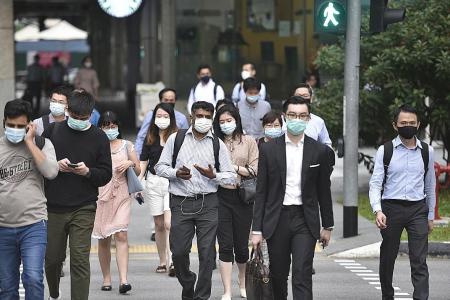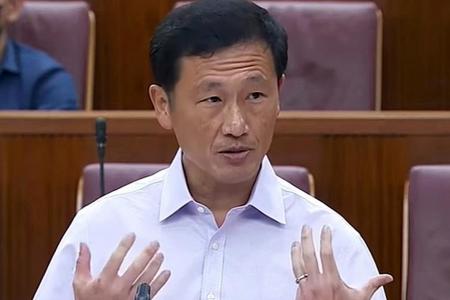Ceca does not affect Singapore’s ability to regulate immigration
Ong Ye Kung's ministerial statement says FTAs play key role here
Far from leading to an unfettered inflow of foreign professionals, free trade agreements (FTAs) play a key role in ensuring the survival of small countries like Singapore, said Health Minister Ong Ye Kung.
Nor is the Republic's ability to regulate immigration and foreign manpower affected by an FTA like the India-Singapore Comprehensive Economic Cooperation Agreement (Ceca), he told the House yesterday.
Singapore signed the bilateral agreement with India in 2005.
In two ministerial statements, Mr Ong and Manpower Minister Tan See Leng laid out the importance of free trade pacts and debunked falsehoods about Ceca, whose immigration-related elements have come under fire on social media and by the opposition.
They also stressed that changes in foreign workforce numbers over time are to be expected, given that policies, as well as countries' industry needs, change over time.
Mr Ong said: "I emphasise and highlight this: Nothing in the agreement implies Singapore must unconditionally let in professionals, managers and executives (PMEs) from India.
"Contrary to Progress Singapore Party's (PSP) claim, our ability to impose requirements for immigration and work passes has never been in question in Ceca or any other FTA that we have signed."
The minister was referring to allegations by the PSP, from before last year's general election, about how Ceca allows professionals from India "a free hand" to come and work here.
FTAs enabled Singapore to ramp up investments from overseas and create thousands of jobs in Singapore, he said.
"When you attack FTAs, and worse, if your attack succeeds, you are undermining the fundamentals of our existence, all the sectors FTAs support, and the hundreds of thousands of Singaporean jobs created in these sectors," said Mr Ong, a former trade negotiator who worked on several FTAs.
Dr Tan acknowledged that 25 per cent of Employment Pass (EP) holders last year were from India, compared with 14 per cent in 2005.
This was driven by the rapid growth of Singapore's digital economy, which attracted technology talent from India, rather than any favourable treatment for Indian EP holders, he said.
But Singapore is not worse off, he said.
From 2005 to last year, the number of EPs increased by about 112,000; over this period, the number of local PMEs grew by more than 380,000.
Dr Tan pointed out that if Singapore tightened controls too much, businesses might simply move their functions offshore, costing Singaporeans their jobs.
Mr Ong pressed PSP's Non-Constituency MP Leong Mun Wai on whether PSP agreed FTAs, including Ceca, are fundamental to Singapore's economic survival; and that Ceca does not allow a free flow of PMEs from India into Singapore.
In response, Mr Leong said while FTAs are important to Singapore, it remains to be studied whether Ceca has contributed to the influx of foreign nationals from India.
"We don't agree that Ceca is net beneficial to Singapore at this stage," he said.
Mr Ong called Mr Leong's conclusion "regrettable". "Generations of FTA negotiators worked very hard to make sure our interests are protected," he said.
"This is not a back door, this is not an avenue for any professionals from any country to enter Singapore with a free hand and unfettered. But I take it that this is PSP's position, notwithstanding hearing all our explanations."
FOR MORE, READ THE STRAITS TIMES
Get The New Paper on your phone with the free TNP app. Download from the Apple App Store or Google Play Store now



